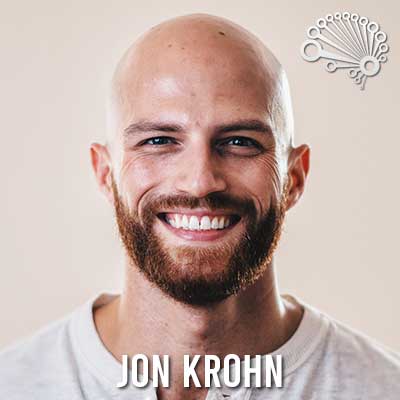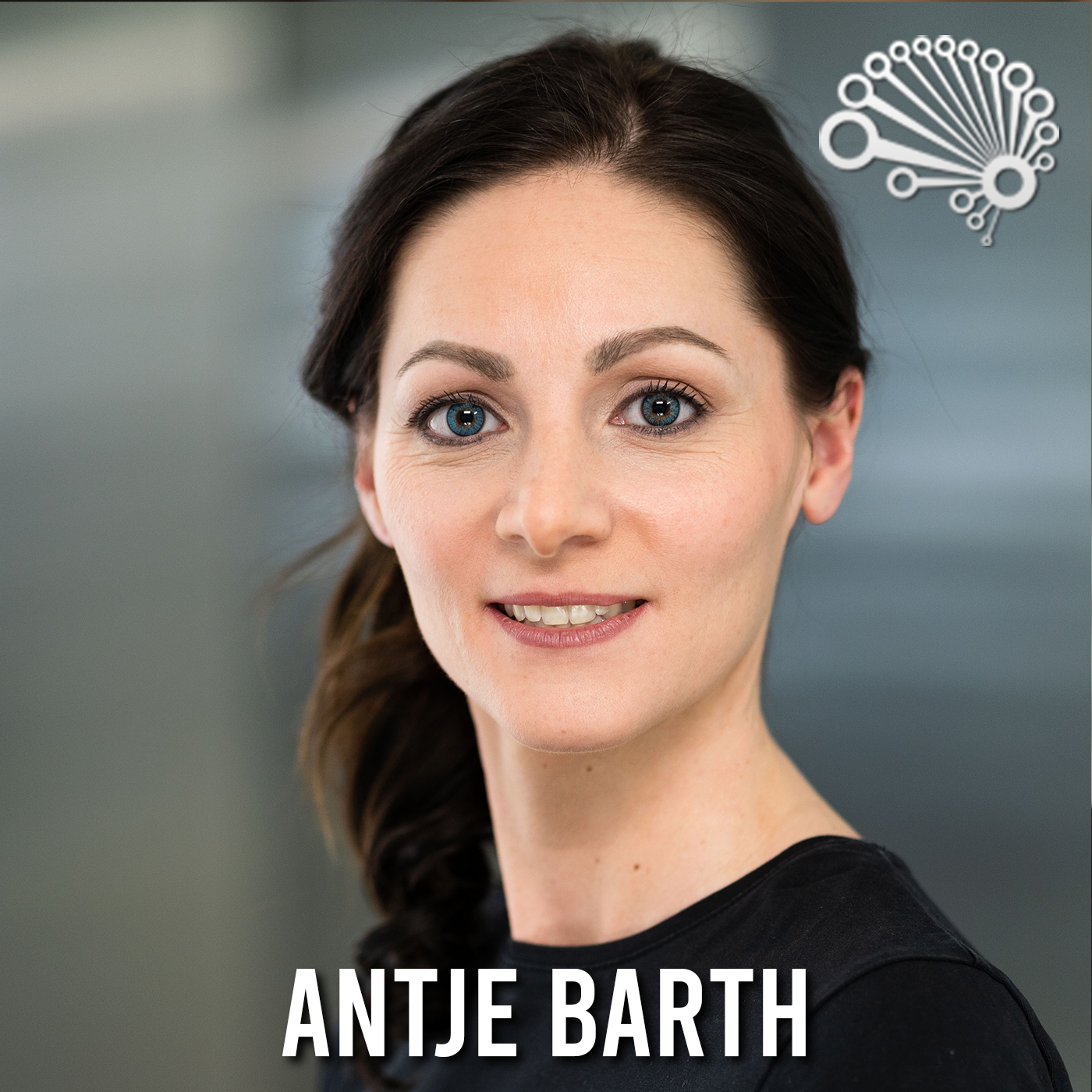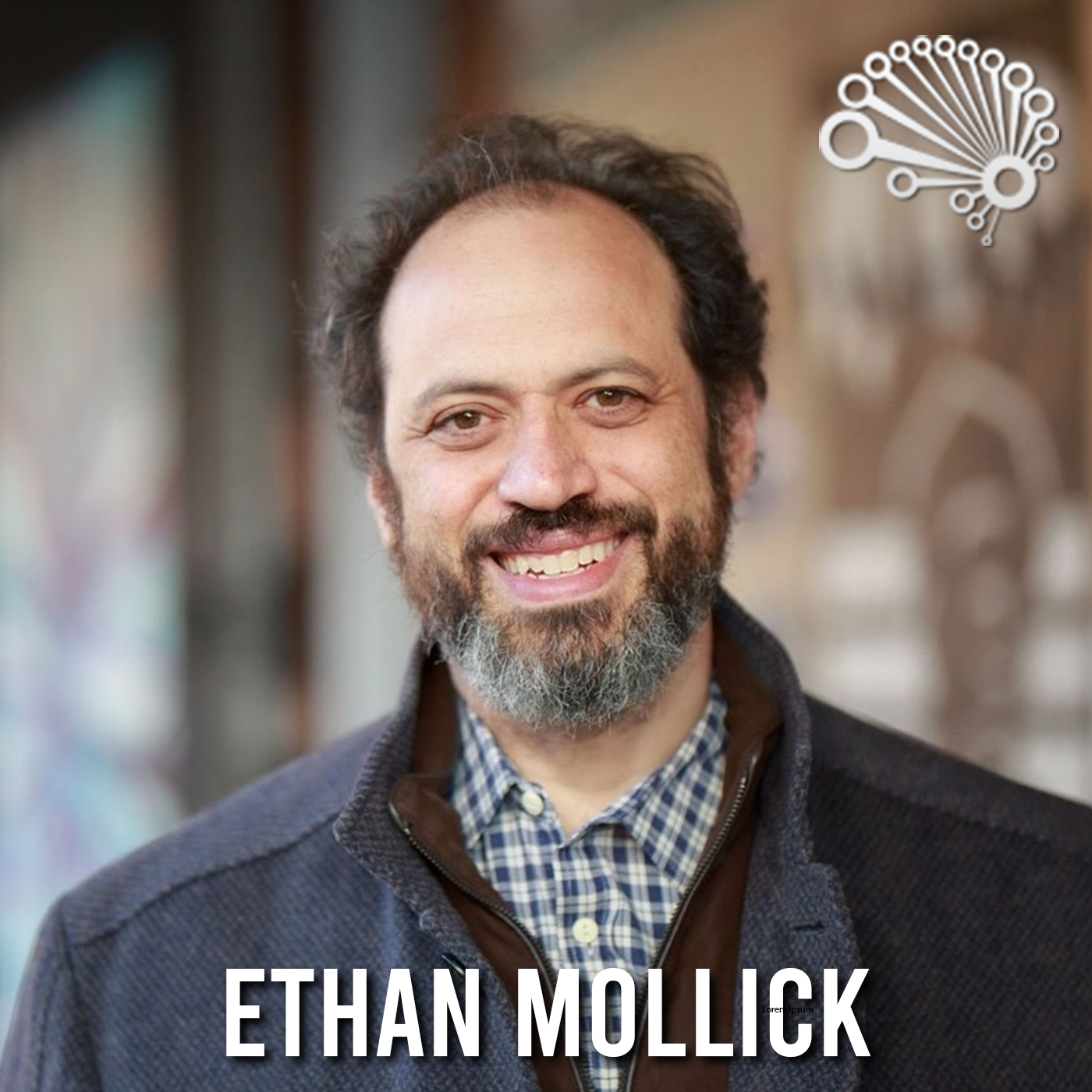(00:06):
This is the third and final part of a series of Five-Minute Fridays on Whether Caffeine Diminishes Productivity.
(00:19):
Two weeks ago on Five-Minute Friday, I detailed the reasons behind my suspicion that caffeine diminishes productivity: First, I’m consciously aware of my mind darting off on task-irrelevant thoughts the more recently I’ve had a cup of coffee. Second, the most productive person I know doesn’t drink caffeine. And third, during the only period of my life where I can objectively and quantitatively confirm that I was exceptionally productive, I didn’t drink caffeine.
(00:46):
Based on this suspicion of paradoxically lower productivity, I conducted an experiment over several months during which I gradually weaned myself off of coffee. I went over a Jupyter notebook of results in great detail during last week’s Five-Minute Friday (which you can explore for yourself at jonkrohn.com/coffee). The conclusion was that I get an average of two hours more deeply focused work when I don’t drink coffee relative to when I do. Since my hours of deeply focused work are some of the most precious and valuable blocks of time in my week, this is a massive boost to my productivity — about 42% more of my creative working time, which adds up to hundreds and hundreds more of these really valuable hours to me each year.
(01:34):
While my experiment was easy to carry out, there are lots of flaws. Here are three of the big ones. The first one is sample size: I am obviously only one person so my individual results may not generalize well to other people. As the RapidMiner data scientist Scott Genzer pointed out on my Twitter feed when I asked whether anyone thought caffeine hurts productivity, he quoted the Hungarian Alfréd Rényi who said that “A mathematician is a machine for turning coffee into algorithms”. All right, so for some people caffeine works really well.
(02:12):
The second big flaw in my experiment is blindness: I was both the experimenter and the experimental subject so was aware of which experimental condition I’m in. A much better experimental setup is a double-blind randomized control trial where the subject would be randomly assigned to either the caffeine or the no-caffeine condition, and not only would the subject be blind to which condition they’re in, but the experimenter is unaware too, that’s why it’s double-blind.
(02:41):
And the third big flaw in my experiment is measurement gaps: I did track the amount of time I was in deeply focused work, but that leaves unanswered questions such as whether I was actually less productive despite spending more hours clocking supposedly deeply focused work. The CTO of my company, Ed Donner, mocked me saying that it looks from the data as though I now get my daily quota of work done in 42% more time!
(03:08):
Now, I can assure you that Ed is wrong. First, there is no limit to the amount of work that I’d like to get done in a day. I have no quota, just an endless list of to-dos that I’m trying to fly through as quickly as I can. Because from each successful project that I complete, typically more ideas of follow-on projects blossom outward creating an exponential cascade of potential work to be done.
(03:33):
Second, my deep-work periods are markedly more focused and productive when I haven’t had coffee than when I have. The experience of deep work is night and day so I feel 100% sure. BUT I do not have data to back me up. It’s qualitative and subjective, which is not great for a scientific experiment.
(03:52):
So, what does the scientific literature indigate? For this, I turned to a review article from the distinguished journal Neuroscience and Biobehavioral Reviews. In it, the authors who came from a blend of private and public research institutions in Canada and the U.S. concluded that moderate to large doses of caffeine (over 200mg, which is more than two strong cups of drip coffee) certainly improve athletic performance. This physical aspect doesn’t surprise me — a big part of why I got so into coffee was to blaze through my early-morning workouts.
(04:28):
But what about when I get to my desk after that workout? Well, they concluded that low to moderate doses of caffeine (from 40mg, which is about a weak cup of tea, to 300mg, which is three strong cups of drip coffee) that leads to increased alertness and reaction time, which the authors note is great for occupations like military, first responders, transport workers, and factory shift workers. But my work isn’t like any of those jobs and here’s where things get interesting…
(05:01):
With my work as a data scientist, I’m not personally so much concerned with how many meetings I can sit through attentively or how many trivial emails I can plow through in a day, even though those tasks are essential. The highest value work for me is when I can deeply focus on complex tasks like reading papers, designing machine learning models, writing podcasts and book chapters, and thinking creatively about new commercial opportunities for artificial intelligence applications. It’s in these kinds of activities that I can add a lot of value to my firm, to my readers, and indeed to you the listener of this podcast.
(05:37):
So, what did the authors conclude was the relationship between caffeine and higher-order executive functions like judgment and decision making? Well, they couldn’t really conclude anything conclusive at all. It turns out the experimental evidence is mixed, depending on specifics of the caffeine dosage, the particular experimental task, and how many hours it’s been since the caffeine intake.
(05:59):
So, what should you do? Well, for me personally, I’m delighted that I’ve kicked my coffee habit. For me, the experience of my workday and my life is unquestionably superior off of coffee than on it: I get markedly more high-value, deep work done each day; I spend one less hour in bed each night but according to my Whoop activity monitor my sleep is more efficient so the number of hours I’m actually sleeping nets out to the same. Most importantly, I enjoy my entire day more, particularly the final hours before bed when I used to get pretty grumpy.
(06:36):
So if you’re a regular bean head, the evidence doesn’t conclusively indicate you should slow down BUT maybe try weaning yourself off of coffee as your own experiment and see how it goes. Life is made richer by trying out new things and maybe it’ll be a change you benefit from making too.
(06:55):
You can get the paper that I reviewed on this podcast episode in the show notes but other than that, that’s it for today’s episode. And it’s the end of these three-part series on caffeine versus productivity. Keep on rockin’ it out there folks and catch you on another round of SuperDataScience very soon.



